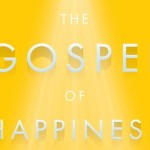Benjamin and Jenna Silber Storey’s Why We Are Restless: On the Modern Quest for Contentment is the fruit not only of reading and research, but also of many years of teaching and mentoring students at an American liberal arts university. The book is framed by two anecdotes: one of a talented young woman paralyzed in her senior year by the mutually exclusive possibilities that lie before her, and another of a young man afraid to “spend his chips”—that is, to turn his cultivated potential into a definite course of life.
Why do students fear determinacy and shrink from choice at just the point when their lives become their own? Why are our privileged classes overcommitted, overscheduled, distracted, and unfulfilled? What are the roots of this peculiar restlessness that possesses us and threatens our political institutions?
In order to answer these questions, our authors present what they call a “biography” of the modern ideal of happiness—or “immanent contentment”—and of the modern class of people that takes this ideal for its own. They begin with Montaigne, who affirmed the adequacy of life on its own terms, in all its variety. Amid the madness of religious war and the contention of philosophic parties in sixteenth-century France, Montaigne bequeathed to modernity the portrait of a man who embraces every pleasure without losing his nonchalance, who embraces skepticism while remaining true to himself and his place, and who embraces his friend without the mediation of any concept that would direct the friendship beyond themselves. Subsequent French moralistes, such as Pascal, Rousseau, and Tocqueville, criticized or amended this new ideal as they observed its effects in the men around them.
Why We Are Restless traces the increasing unsteadiness in our lives and instability in our social order to defects in our education and ways of thinking. Under the influence of Montaigne and his successors, we have been taught to seek our happiness in this world while “fencing off the mind’s dangerous forays beyond the immanent frame.” However, as splendid and alluring as Montaigne’s humane “art of ordinary life” may be (and the authors show that it is indeed very powerful), the result—as the author of Ecclesiastes would have predicted—is new pretense followed by new anxiety. Since we know that we can now be happy, we feel that we ought to be, and therefore are surprised and ashamed to find that we are not. Immanence turns out to be “as mad a master as transcendence had been.”
Start your day with Public Discourse
Sign up and get our daily essays sent straight to your inbox.The book is essential reading for all observers of the persistent, often hidden, but increasingly visible unhappiness of contemporary life.
The authors’ fundamental thesis is therefore that our practical reason, though capable of much, is not trained to perfect the kind of beings we in fact are. The quest for “immanent contentment” that animates modern thought and institutions tends to alienate us from “our own self-transcending nature” and from “the architecture of transcendent questions in which our practical choices are situated.” They close with an argument for liberal education as “an education in the art of choosing.” By helping us to face squarely the strange and contradictory character of our “patchwork being,” liberal education can help us rank the goods of existence and thereby turn our anomie into purposive, directed living.
Written in an engaging and compact style, the book is essential reading for all observers of the persistent, often hidden, but increasingly visible unhappiness of contemporary life. Benjamin and Jenna Storey have done us the service of restoring some of the deepest arguments about human happiness that lie at the roots of modern politics. This means first of all making intelligible Montaigne’s great effort to remain “loyal” to the human condition. It also means reframing the thought of more familiar political theorists, Rousseau and Tocqueville, as responses to the picture of happiness presented by Montaigne. We see Rousseau subjecting Montaigne’s vision to searching critique while nonetheless striving to vindicate the goodness of nature. We then see Tocqueville observing the effects of universalizing the Montaignean turn from the transcendent to the immanent in American democracy, where Montaigne’s project comes to grief in a self-undermining attack on the “forms” (including liberal political forms) that give meaning and purpose to our independence.
The book’s hero, however, may be Pascal. The authors contend that in Pascal, “the restlessness that is truly modern—the restlessness of the soul that tries and fails to hold itself within the confines of immanence—finds its first and most powerful voice.” By giving a full articulation of Pascal’s attempt to awaken indifferent modern men and “set them in motion,” the Storeys have given us another resource for persuading our contemporaries to look up and beyond the modern thinking that confines them.














